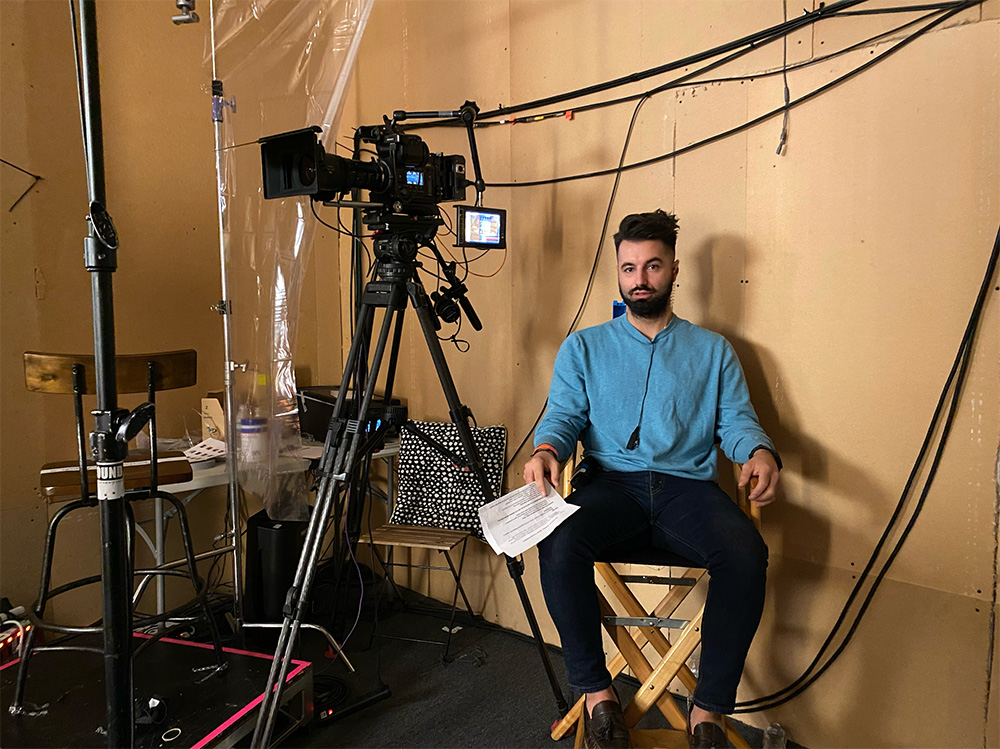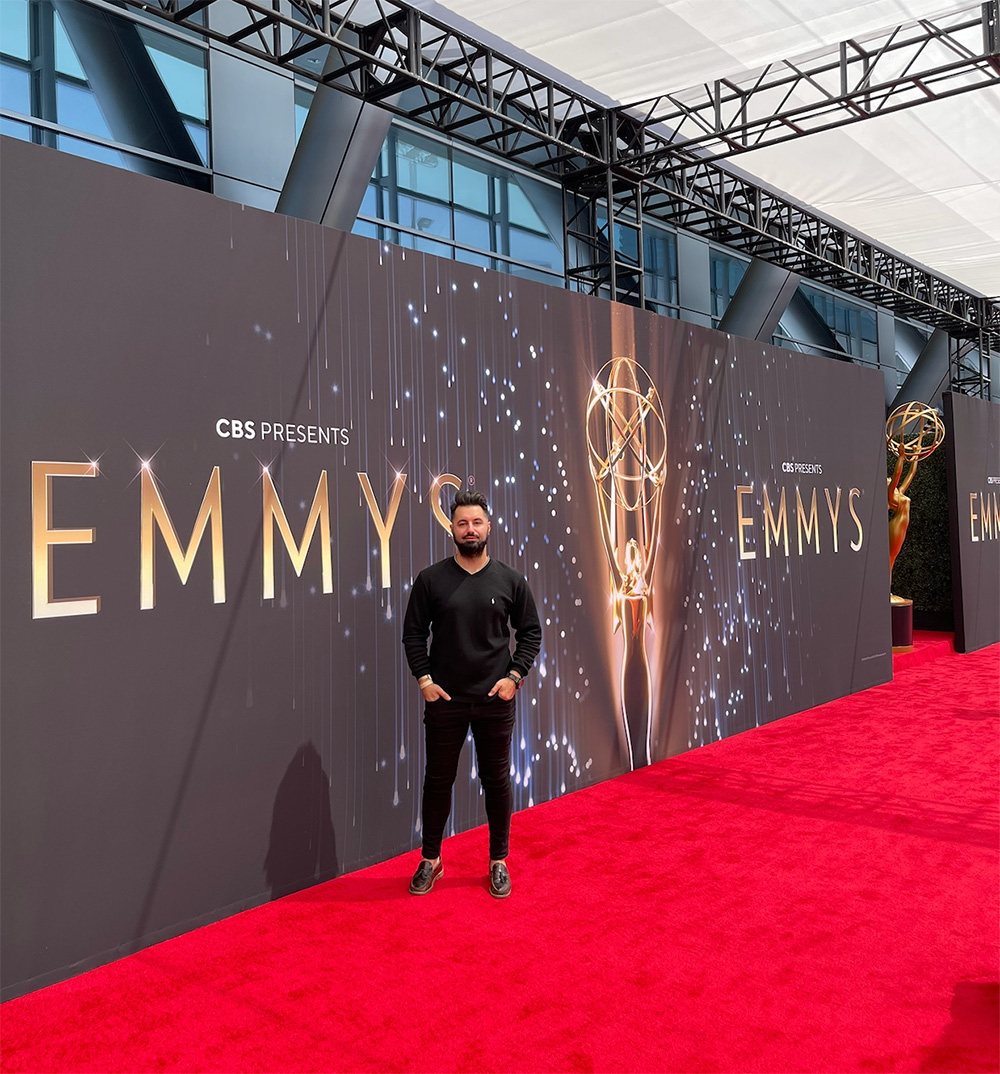Many of us grew up immersed in film and television. Popular media have evolved over the last hundred years exponentially and have influenced societies for generations- becoming our main sources of entertainment, engagement and education. We get lost in a world created by creatives, a world full of wonder, magic, and other people. Sometimes those people resemble us and our journey. Sometimes they don’t- but they enlighten us to other communities, cultures and ways of seeing the world.
Grivas Kopti understands very well the importance of on-screen representation in film and television. He is one of the founders of and sat on the board for over ten years at InterMedia, a network group for people working across all areas of the media spectrum that champions diversity in all forms, on and off screen. This includes broadcasters, streamers, independent production companies, charities, advocacy groups, publishing, advertising and freelance staff across all areas.
Kopti’s idea for InterMedia came as he was looking for a good cause to utilize his connections from a wildly successful television career. Grivas has worked in several highly sought after powerful positions for top broadcasters like The BBC, ITV, Channel 4, MTV, Netflix, and Discovery, among others. His rich resume includes impressive projects at internationally acclaimed production companies like Fremantle, Magical Elves, live event television production company Den of Thieves, Studio Lambert, A Smith & Co., and Fox Studios.
Grivas firmly believes that the best stories told on television and have impact on viewers are original stories. Told by a wide range of voices, from different backgrounds. He took it upon himself to champion change from the top. The emphasis of the work carried out at InterMedia was always on research, and ongoing analysis of media portrayals. The outcome of that was a well-thought-out proposal, personalized for each network, on how to increase fair representation.
Kopti recalls “it’s a lot easier to advise networks on how to better their diversity after you give them a clear snapshot of the gaps in their programming, but also, in turn, the opportunities also to do better. It’s a win-win for all.

Now thriving and one of the industry’s top celebrated Producers, Grivas takes his platform seriously and sees it as an opportunity for everybody to see themselves on screen. He grew up in an eclectic suburb of West London. He recalls “I was very fortunate growing up. I got to enjoy being raised in a family-oriented Greek-Orthodox household, but also exposed to other religions and communities. My neighbors and friends were from all over the world and I loved that. School really embraced celebrating all of the kid’s religious holidays and educated us about them. I lived in a world full of different ideas and opinions, but the community was what we all had in common.”
And that’s exactly why viewers fall in love with television shows, because they create a sense of c0mmunity. So for Grivas, he sees it is important to represent all communities.
From an editorial perspective, Grivas sees no excuse for television producers to perpetuate stereotypes in the writers rooms of hit shows. “We know better now!” Grivas says, referring to a collective social consciousness that seeks acceptance and equality. Stereotypes are rarely authentic and do more harm than good. “We can’t pull the wool over the viewer’s eyes, they’re far too sophisticated.”
And the proof is in the numbers.
The 2021 Hollywood Diversity Report states that “Films with casts that were at least 21% minority enjoyed the highest online viewing ratings among all racial groups in the all-important 18–49 age category.”
What we really want to know from Kopti is what some of the best solutions are. What is working and what is not? What are his recommendations?
“It’s a combination of things, a multi-strategy approach. It is nurturing young talent throughout their career and seeing them to senior, decision-making positions. It’s in-house unconscious bias training carried out by the biggest studios, networks, and production companies in the entertainment industry. It’s holding workshops. It’s making sure the writers room is diverse enough to represent all members of society. These things all have to work together simultaneously to achieve and maintain real lasting change.”
There is much hope. Younger viewers are pushing more than ever for authenticity on screen, and a key facet of this is overall diversity and representation. That, says Kopti, is what makes a story unique and successful. It really is that simple. And it’s the future.






